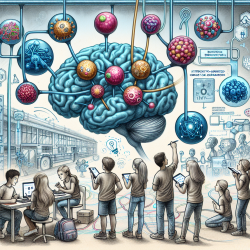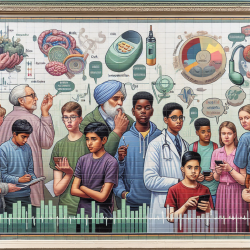Introduction
The COVID-19 pandemic has undeniably transformed many aspects of our lives, including the field of psychoanalysis. As practitioners, it is crucial to understand these changes and adapt our practices to continue providing effective therapy. The research article "Pandemic Psychoanalysis" by Robert M. Prince, Ph.D., offers valuable insights into the impact of the pandemic on psychoanalytic practice and presents opportunities for growth and adaptation.
Understanding the New Therapeutic Landscape
The pandemic has introduced a "co-participant trauma" that affects both patients and therapists. This shared experience has blurred the boundaries of traditional therapy, requiring practitioners to navigate a new therapeutic landscape. The article highlights the importance of understanding this context to provide effective therapy.
Key Insights from the Research
- Remote Practice: The shift to remote therapy has become a necessity, prompting therapists to adapt their methods. This change offers both challenges and opportunities, as it requires new ways of establishing therapeutic connections.
- Shared Trauma: Both therapists and patients are experiencing the pandemic's impact, creating a unique dynamic in therapy sessions. This shared trauma can be leveraged to foster deeper connections and understanding.
- Flexibility and Adaptation: The pandemic has challenged traditional therapeutic frameworks, emphasizing the need for flexibility and adaptation in practice. Therapists must be open to new approaches and willing to adjust their methods to meet the evolving needs of their patients.
Practical Strategies for Practitioners
To effectively navigate this new era of psychoanalysis, practitioners can implement the following strategies:
- Embrace Technology: Utilize digital platforms to facilitate remote therapy sessions. Familiarize yourself with different tools and technologies to enhance the therapeutic experience.
- Focus on Connection: Prioritize building strong therapeutic alliances by acknowledging the shared trauma and fostering open communication.
- Stay Informed: Continuously educate yourself on the evolving landscape of psychoanalysis and the broader societal changes affecting therapy.
- Encourage Self-Reflection: Promote self-reflection in both yourself and your patients to better understand the impact of the pandemic on personal and therapeutic experiences.
Conclusion
The pandemic has undoubtedly reshaped psychoanalytic practice, presenting both challenges and opportunities for growth. By embracing change and implementing the insights from the research, practitioners can continue to provide effective therapy in this new era. For those interested in further exploring the impact of the pandemic on psychoanalysis, I encourage you to read the original research paper, Pandemic psychoanalysis.










